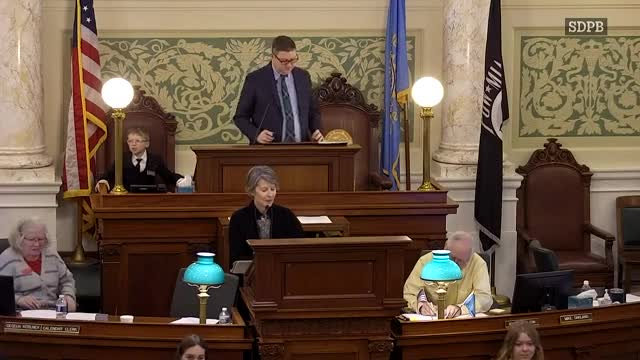Senate rejects bill to cap school administrator pay to district teacher average
Get AI-powered insights, summaries, and transcripts
Subscribe
Summary
Senate Bill 161, which would have tied school administrator salaries to the average teacher salary in each district, failed on final passage after extended debate about local control, funding and policy trade-offs; the bill lost 13-22.
The South Dakota Senate on final passage voted down Senate Bill 161, a proposal to cap school administrator compensation at a level tied to the average teacher salary in each school district. The bill failed by a vote of 13 yeas and 22 nays.
Senator Peterson, the bill sponsor, argued the measure would prioritize teacher pay and reduce a widening gap between teacher and administrator compensation. "This bill is very simple. It sets administrative salaries based on the average teacher's salary in that school district," Peterson said on the floor, and she cited spending and growth-rate data distributed to senators from the South Dakota Department of Education.
Opponents said the proposal improperly intruded on local school-board authority and could produce unintended consequences. "This is not how you fix that problem," said Senator Smith in opposition, arguing that school boards should have discretion to set administrator pay and that pushing down other positions is not the right approach. Senator Kolbeck also urged rejection, saying the matter belongs at the school-board level and warning that the bill could create incentives for districts to work around the limit.
Senator Nelson urged the body to recognize education performance challenges and evaluate how funding decisions are made; she characterized the bill as one idea among many to address student outcomes and staffing incentives. Senator Jensen raised a technical question asking whether the bill used a mean or median average; Peterson replied the statutory language uses "average" and did not specify median versus mean, a point opponents said could cause unintended pay fluctuations if district salary structures change.
Questions on funding and local control came up during debate. Senator Grove asked whether legislative appropriations or local school boards determine pay increases; Peterson said the state funding formula, local property taxes and federal dollars all contribute to school finances, and the legislature controls the statewide appropriation component.
After debate and a brief closing from the sponsor, the roll call showed 13 yeas and 22 nays; the president declared the bill lost on final passage.
